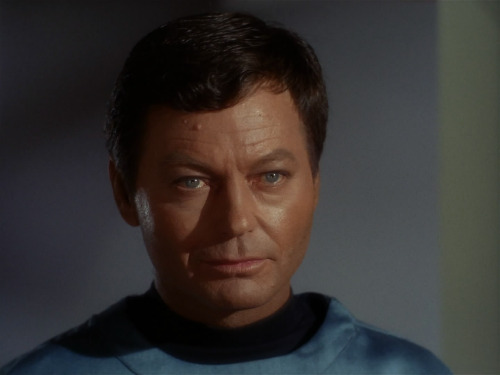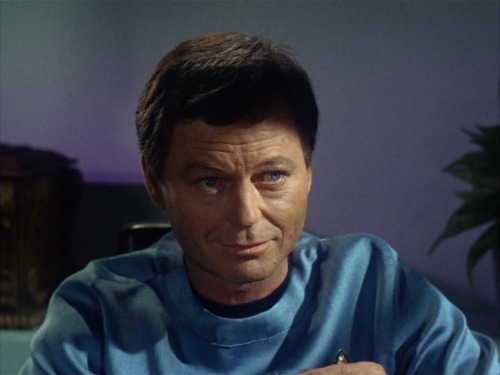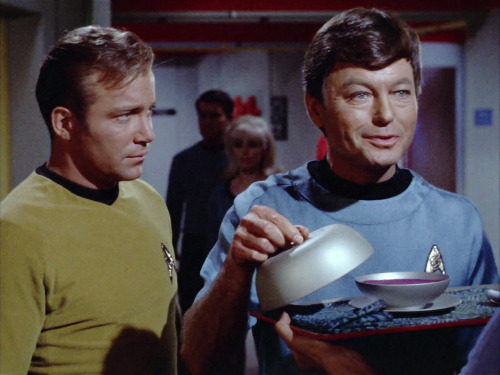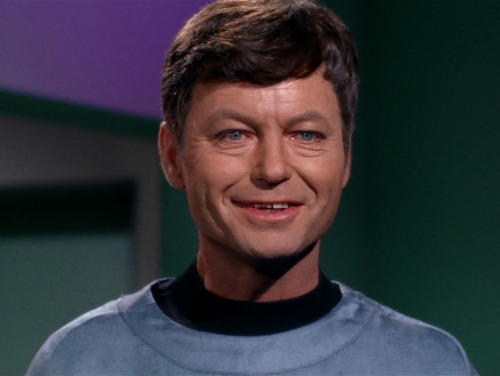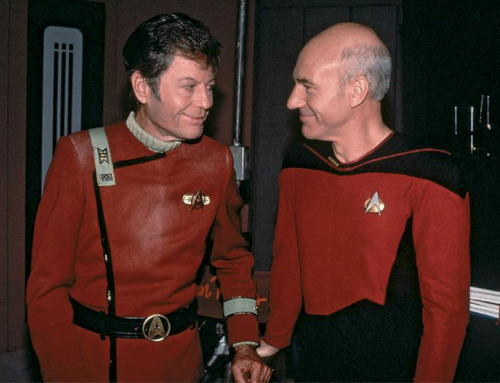theyboldlywent:After two doctors from two pilots failed to take, it was obvious that the role of chi
theyboldlywent:After two doctors from two pilots failed to take, it was obvious that the role of chief medical officer on the Enterprise was going to have to get a serious re-examination. DeForest Kelley had actually been at the top of Roddenberry’s short list for the position dating back to “The Cage,” but director Robert Butler suggested John Hoyt for the role of Dr Phil Boyce. By the time a second pilot was in the early stages of production, Kelley was filming the pilot of the other show that Roddenberry was working on, Police Story. Police Story didn’t get picked up, so both Kelley and Grace Lee Whitney found themselves hired for Star Trek. Kelley would replace Paul Fix, whose Dr. Piper had failed to make much of an impression. In Leonard “Bones” McCoy, the producers, writers and directors had found the missing piece of the puzzle, a personality and character that would balance out Kirk’s commanding drive and Spock’s cool, alien detachment. Bones acted as an everyman, and his place outside of the traditional command structure meant that he could be more frank and even provide a voice for the audience on occasion. Watching the show now, it’s remarkable how effortless Kelley’s performance looks, even by modern viewer’s standards; there’s nary a moment that isn’t pitch-perfect. His avuncular nature and friendliness were apparent on-screen and his very human reactions to the more outrageous moments of the series helped sell the unbelievable. Sadly, he wasn’t well-compensated for his sterling work, especially in the first season, when he made $800 per episode. His agent worked hard, though, and the second season’s star billing came with a hefty raise to match Nimoy’s $2,500 per installment. (Shatner was getting $5,000.) “What I want, as a co-star, is to be counted in fully. I’ve had to fight for everything I’ve gotten at Star Trek from a parking space at the studio to an unshared dressing room, and sometimes the patience wears raw,” he said in a 1968 TV Guide interview. Even as Kelley was taken for granted by accountants, producers and the media — Roddenberry attempted to send him along with Nimoy and Shatner to the Today show in 1967, only to be told that he “wasn’t needed” — his reputation on the set was nothing short of stellar. Always happy to do another take, unfailingly polite to the various craftsmen around the soundstage and seldom heard complaining openly, Dee Kelley was widely considered the best-liked member of the cast, even as the series moved into film and beyond. -- source link
Tumblr Blog : tumblr.theyboldlywent.com
#rebloggingmyself


